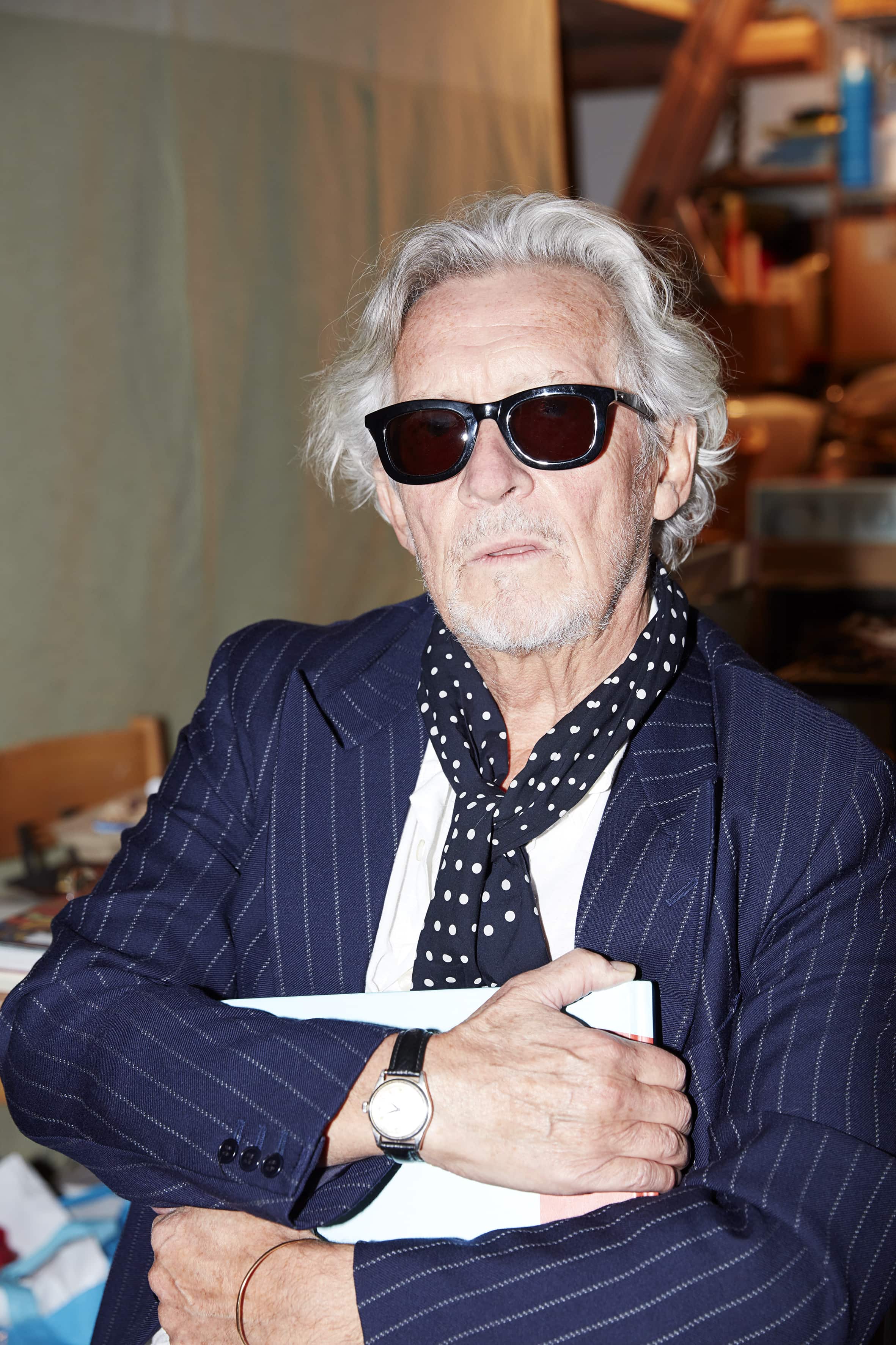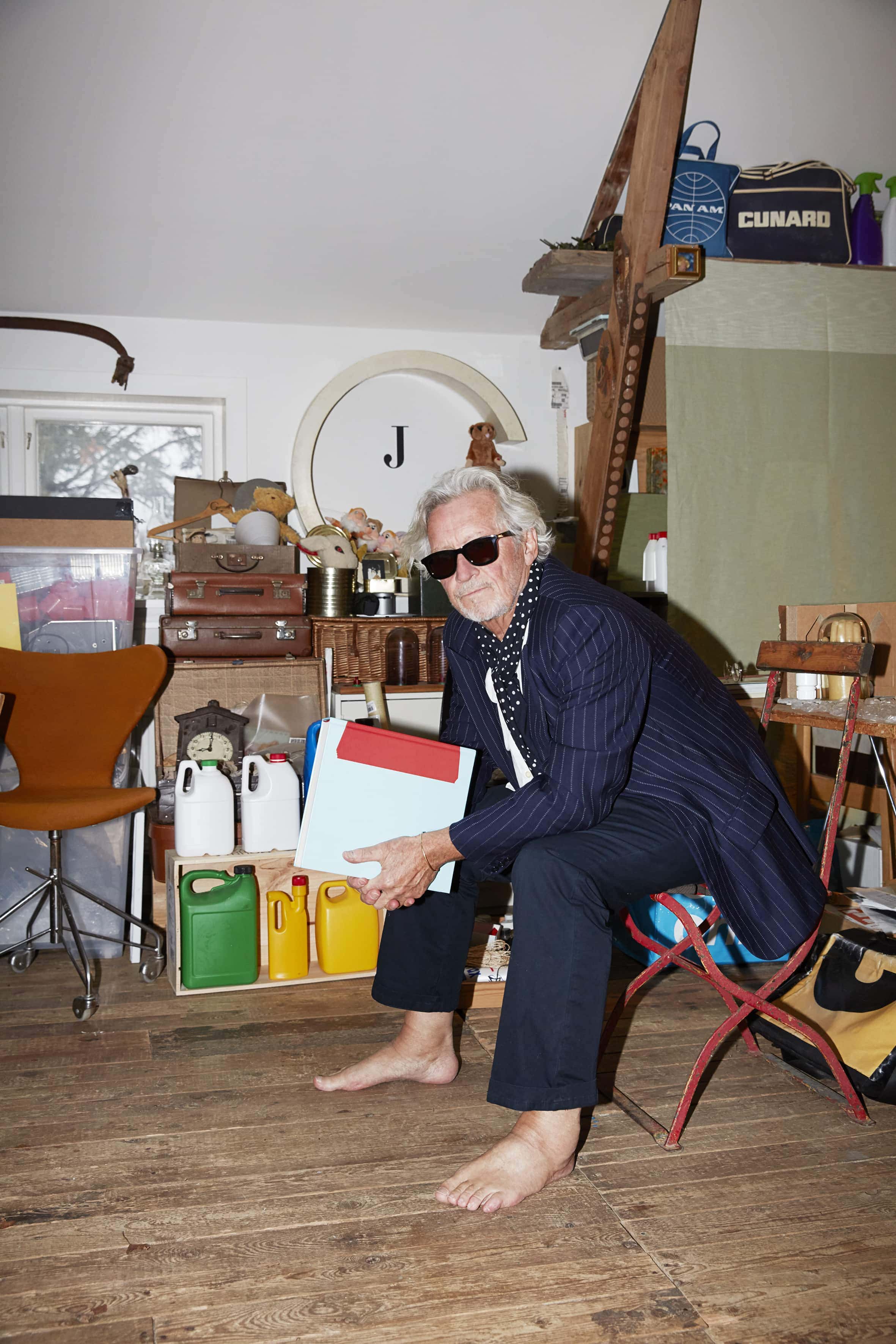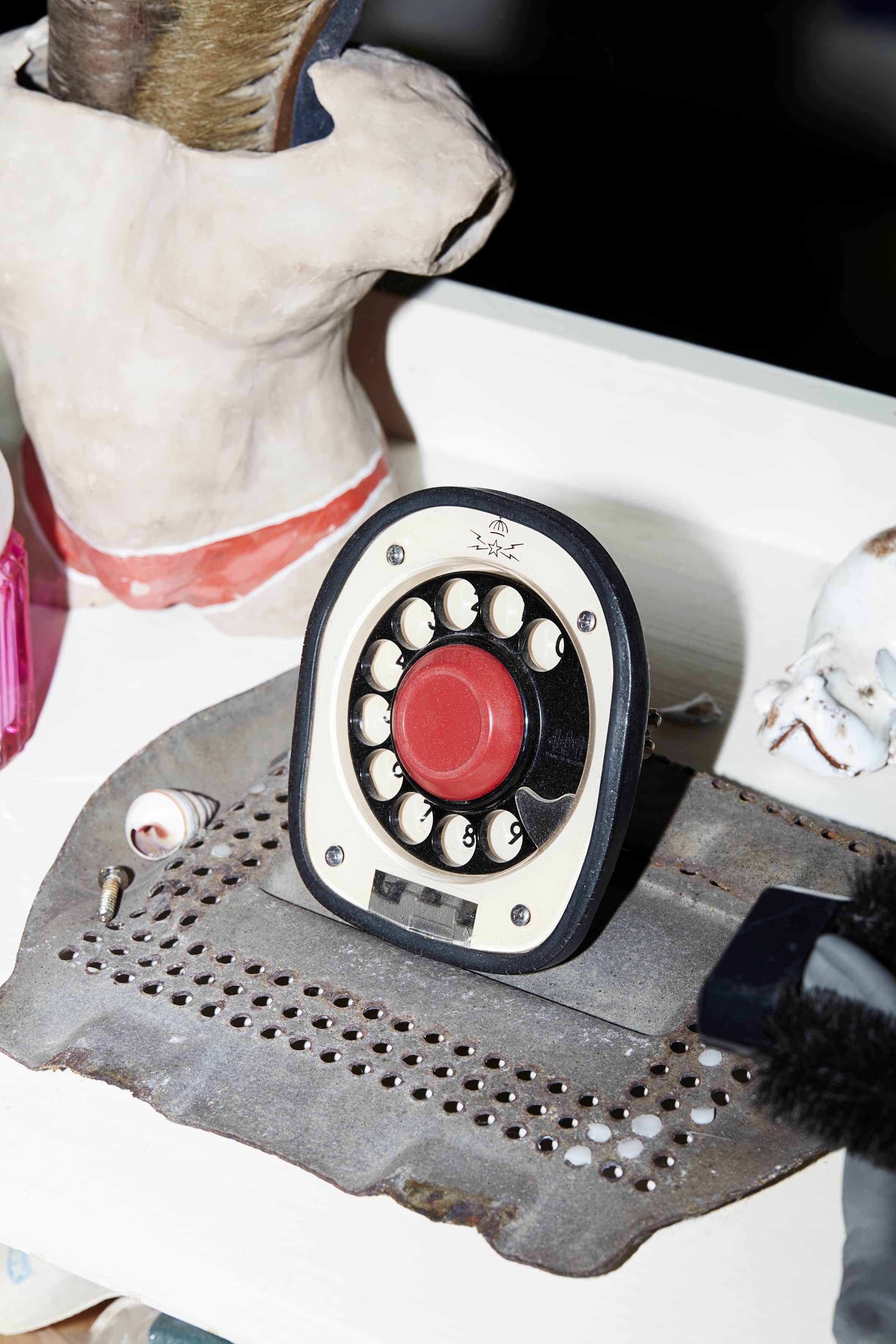SPOTTING EVERYDAY BEAUTY
British artist and graphic designer Andrew Cowie finds beauty in everyday life, whether it is a bus ticket on the street or a stripped off liquid bottle. We paid a visit to his house with stories in every corner. If you are in Gothenburg, don’t miss his show Rooms with Views at Mouche Collective until December 1.
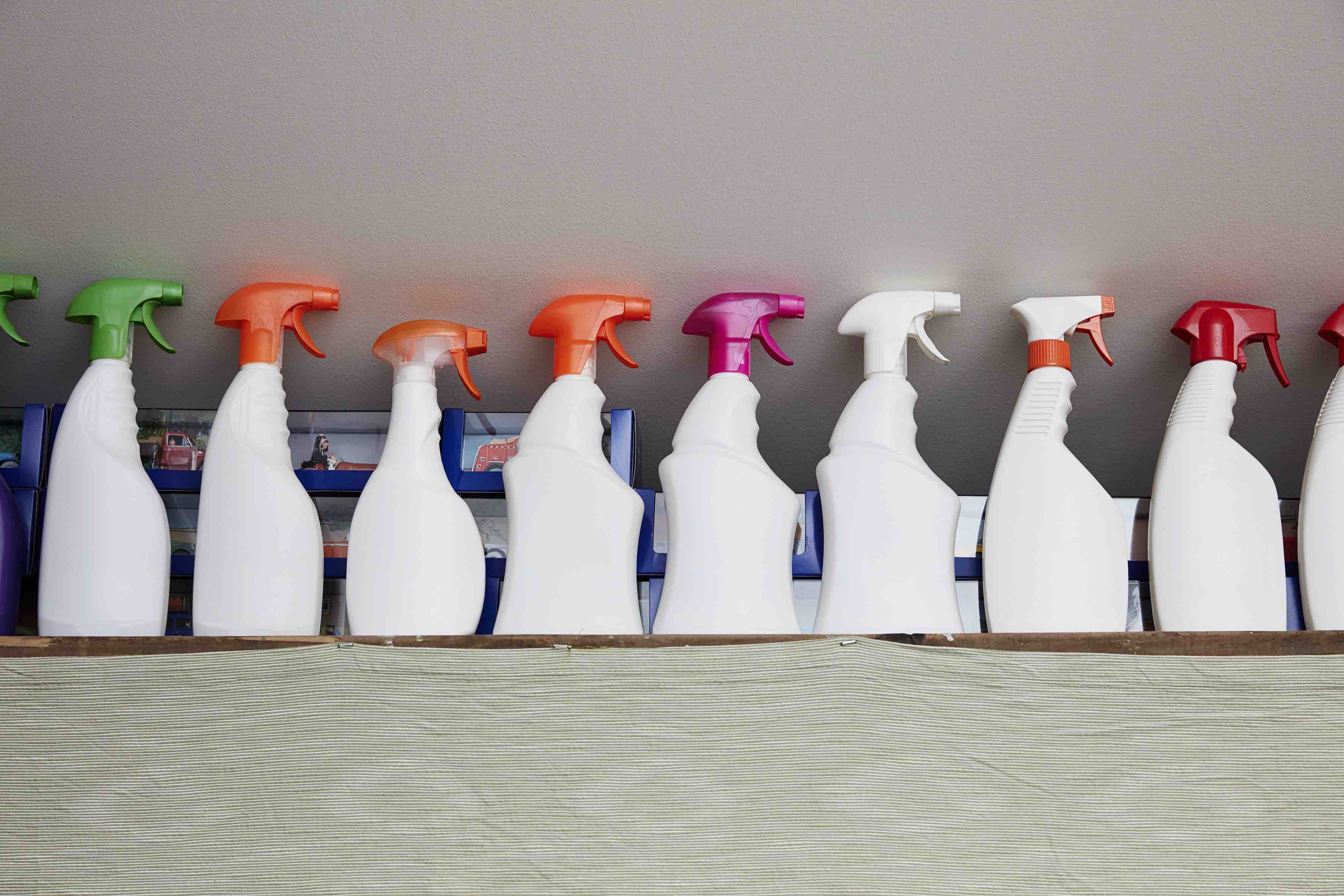
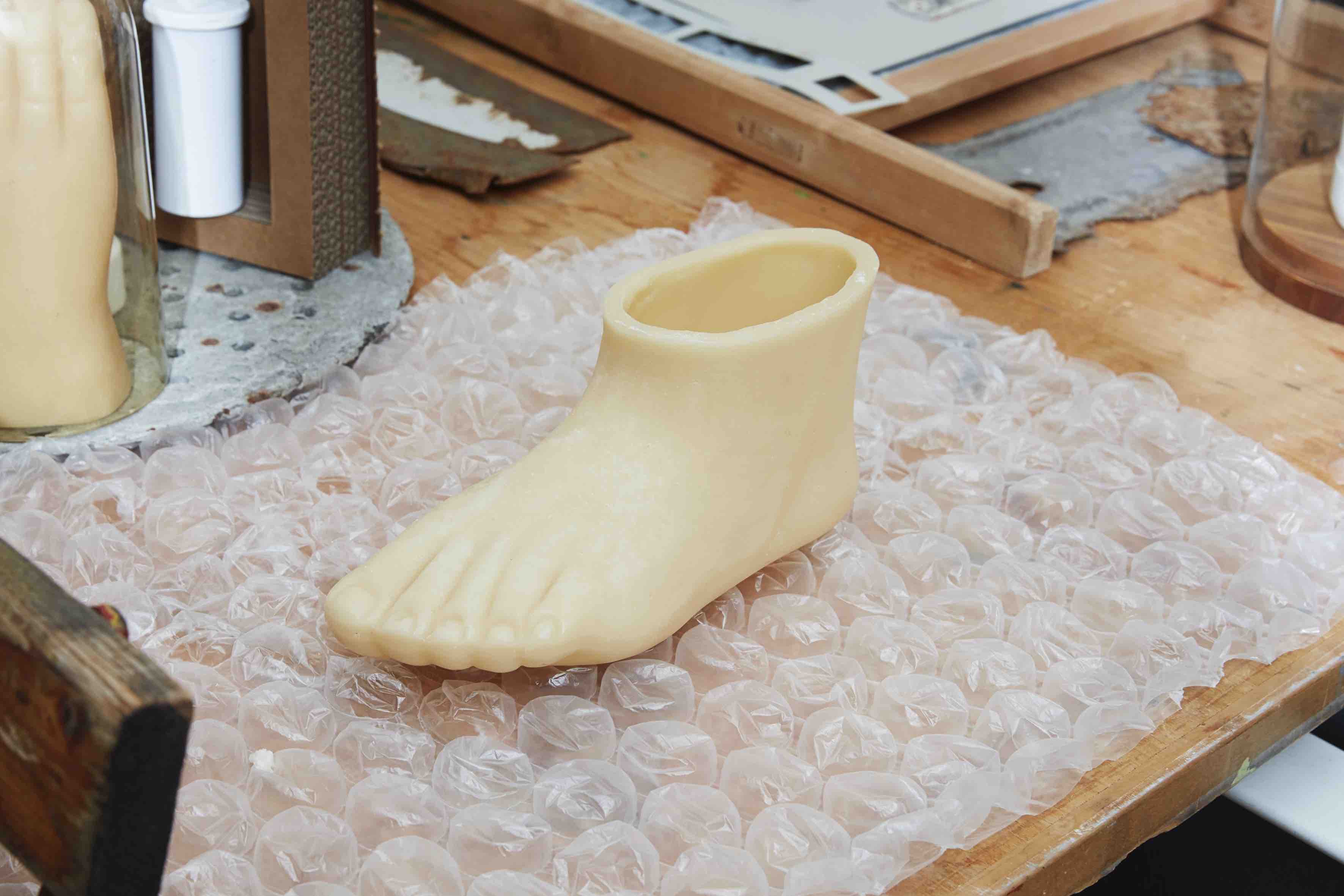
A cupboard stacked with toys, 1784 copies of George Orwell’s novel 1984, a box full of bus tickets and shelves packed with stripped off cleaning liquid bottles. Welcome to the world of Andrew Cowie, a London-born artist and graphic designer who lives with his wife outside Gothenburg, Sweden in a converted barn.
It is as if time has stopped here: in the garden a piano has been left for years inside a greenhouse, carefully documented by Cowie. Inside the house, walls are covered with paintings, collages, and peculiar sculptures. Everyday objects have a completely new function, such as the vacuum cleaner and iron turned into lamps, cardboard packaging turned surveillance camera and yoghurt bottles turned sculptures.
It is evident that Cowie sees the beauty in everyday life. As far back as he can remember he would put things he found on the streets in his pockets. “As child I was fascinated by something I found on the street, it could be receipts, labels on clothes or the packaging of a dinky toy behind the counter in the toy store. I didn’t know why, but I stocked these items in boxes. I didn’t know what graphic design was as a child, it was just a gut feeling,” he says, and continues. “I wouldn’t call myself a collector, but a keeper. I might end up with collections of things, but it is all unintenional.”
ANDREW IN OH-13
Early on Cowie discovered that art was his way of communicating with the world. From a young age he would get complimented for his drawing skills. “That’s what I felt happiest doing. Putting things on paper,” Cowie recalls. But as he grew older, he would get destroyed by the system, as he explains. Teachers would tell him: “That’s not how you draw”. “For me the result is not important, it is the process, but unfortunately the school system is hung up on results, it’s terribly sad,” he says and recalls a moment that has stuck with him until today. “At school, due to there not being art on the curriculum, I ended up doing things I didn’t want to, such as economic history. I was a trouble maker, threatened with expulsion on numerous occasions, and often failed my exams. I can still remember the time, I was 16, it was a summer’s day, and I was waiting outside to read the results on the notice board. We had an Irish maths teacher, an absolute swine, who came up to me and said: ‘Cowie, you are bloody useless’. That stayed with me and is still buried in me. Even if I have won the odd design award, I still see myself as a fluke, I’m just lucky. I can’t get it out of my head.”
Cowie decided to become a teacher “to change the system from within”. He studied art and drama at London University. But soon after graduating the school’s art department was shut down. Art studios were swapped for computer halls, creativity with economic reforms. Cowie ended up moving to Athens, Greece for a teaching job. Shortly after he fell in love with a Swedish woman, and they settled down in Gothenburg. Slowly he turned towards illustration and advertising, and on the side, he kept up his own artwork. “I started working for a gallery in Gothenburg. After a while I felt that I was not painting for myself, but for an audience. There was no soul in it. I was not happy, so I stopped painting completely,” Cowie says. All the while I had been working on personal pieces which I never showed, often collage based. I felt so much happier working on these pieces, I was doing it for a reason. It was autobiographical. “I felt so at home with what I was doing, it felt genuine.”
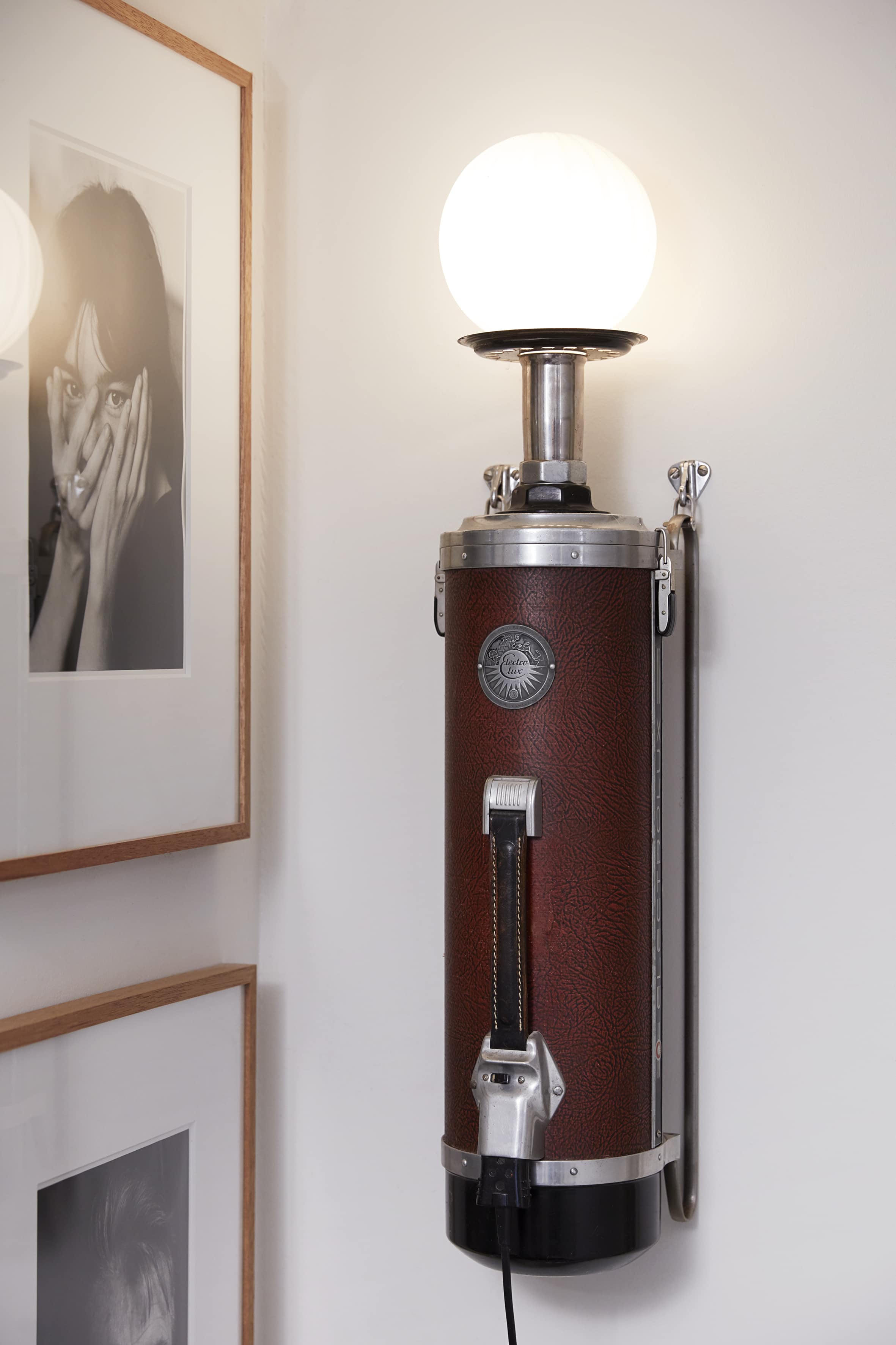
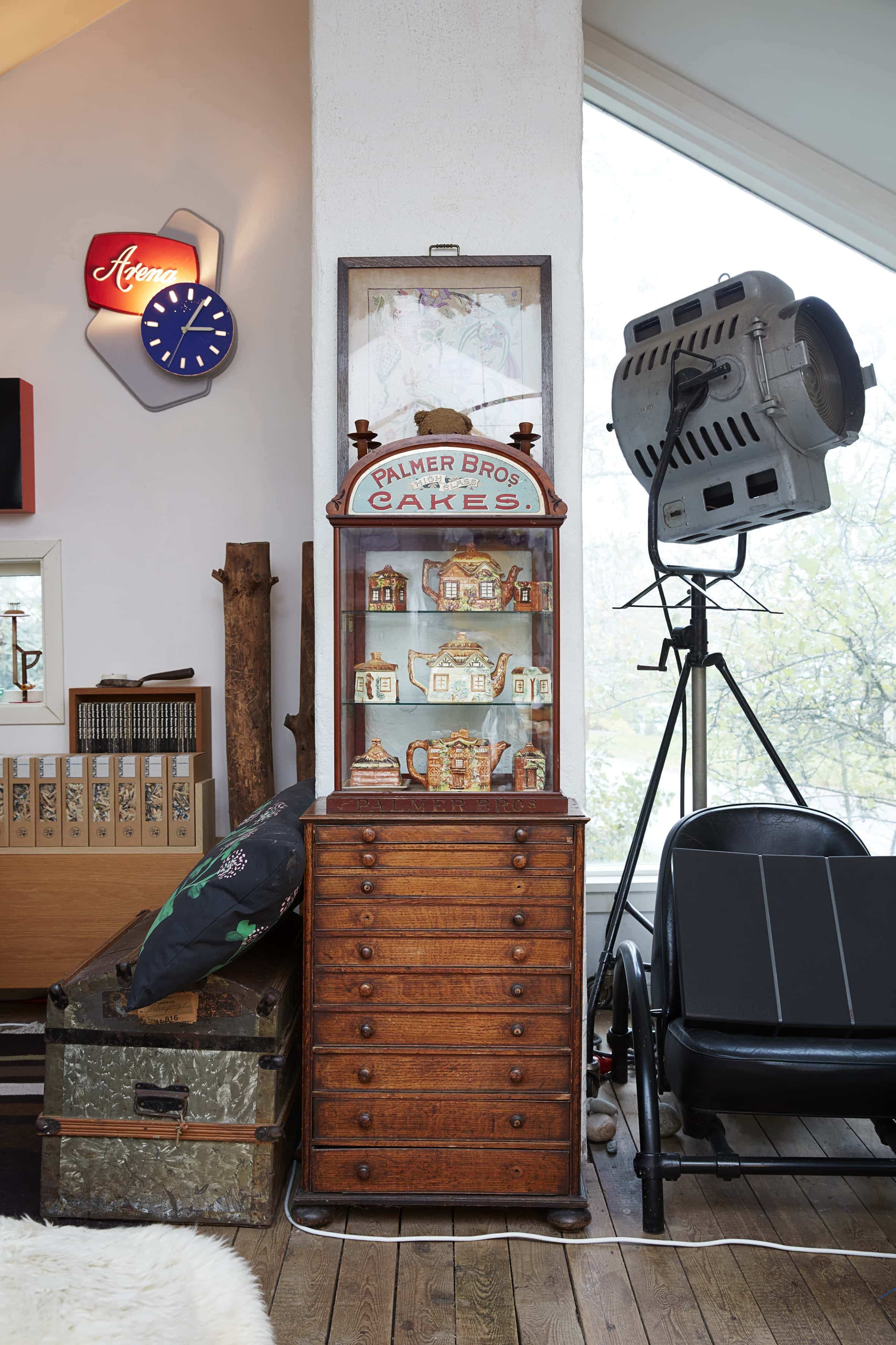

If Cowie starts a project, he can’t stop. At the moment he is all in to packages, liquid and tablet bottles. There is also a big book project going on. “I had this show about books as objects. I did a thing for a book fair based on Ian Fleming’s novel Russia with love. I ended up finding 500 copies of the same book. It took me 17 years to collect. And I have 200 copies of 1984 to go – 20 years of collecting 1984 copies. I have no time pressure anymore. I’m not in a hurry.”
YOU GREW UP IN SOUTH LONDON, WHAT WAS IT LIKE?
“It was absolutely brilliant growing up in London. I was spoilt for great music whether it was experimental, rock music or classic concerts. What a great time I had. I had liberal parents, they called themselves conservative, but I was getting a lot of freedom. Because of that I didn’t have to rebel.
ANDREW IN OH-13
YOU HAVE AN INTEREST IN CLOTHES, HOW COME?
“I don’t know why. I was interested in clothes from around the age of 12. I didn’t want to have what other people had. I bought clothes from flea markets. In the 60s I was in to post war clothes from second hand collectors. There was a wonderful shop on The Strand in London called Badges and Equipment. It was all second hand, you could find weird military boots and American football jackets. I went through a period not wanting Levi’s jeans. I found an obscure French maker instead. I loved Comme des Garçons, Rei Kawakubo, Issey Miyake. I really like Belgian and Japanese designers. Now I can’t be bothered, I live off the stuff in my wardrobe.
YOU MUST HAVE MET SOME INSPIRING PEOPLE ON THE WAY?
“Yes, one of those people is Paul Smith, the designer. I met him many years ago, when he only had one shop on Floral Street in Covent Garden. Paul Smith has always been very sociable. He is somebody that collects. He’s got mega stuff everywhere and a great eye, not just for fashion. I’ve done some prints for his shops, and he has a few of my books. He’s got great personal style and is not full of himself.
DO YOU THINK YOU’LL EVER STOP COLLECTING?
“I always have something going, I never stop. I’m never lost for things to do. It is the process that I really enjoy. I get so wrapped up in it. The result can be rubbish, a disappointment. But it is a learning curve. Other things can happen along the way, it changes direction during the process and becomes something else. Sometimes the result is uplifting, a real adrenaline rush.”
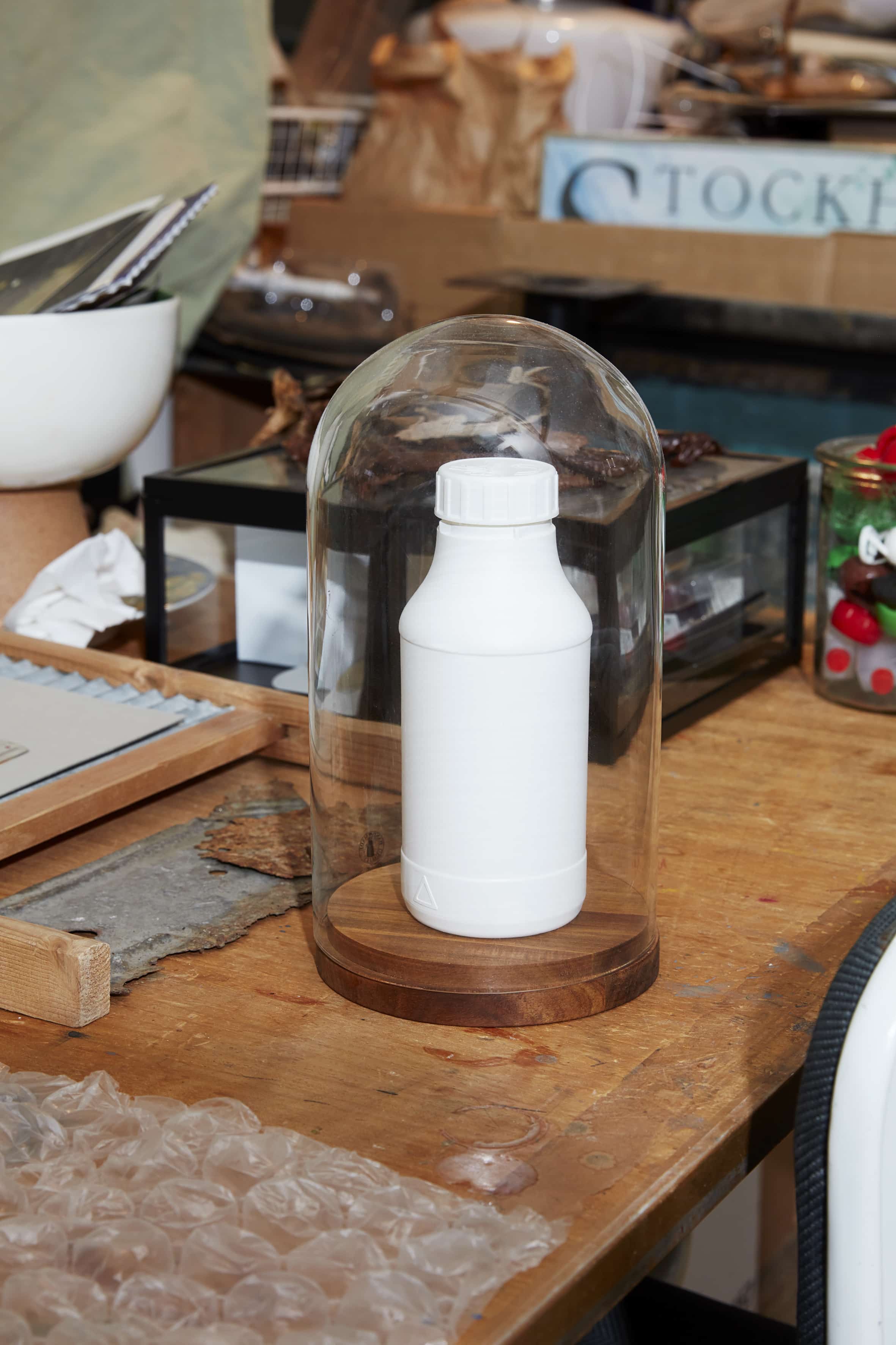
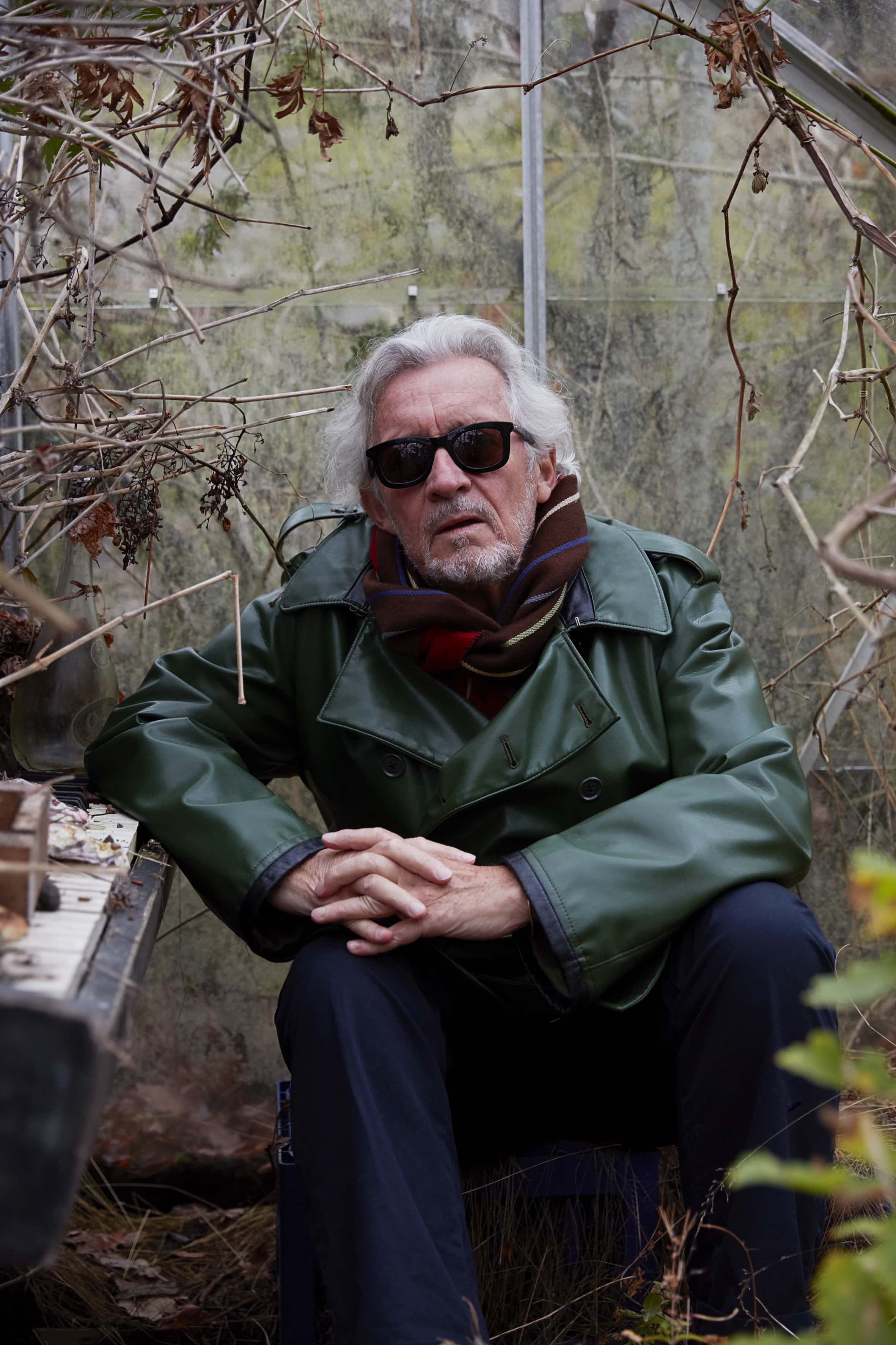
ANDREW IN OH-13

